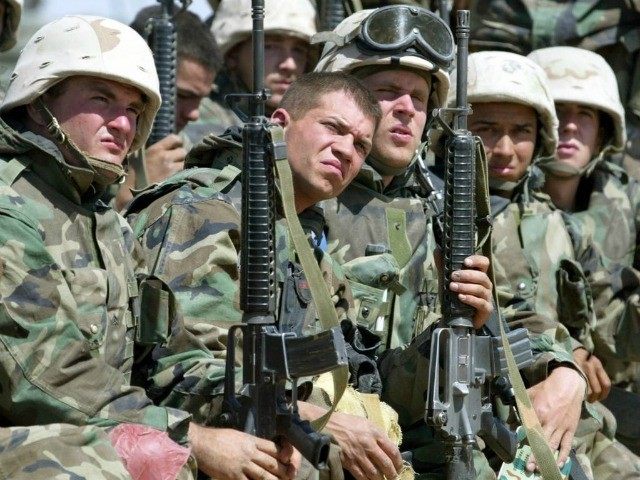A study from the American Psychological Association claims that the incidence of male-on-male sexual assault in the military is vastly higher than what the Pentagon reports. In fact, the authors suggest “rates of military sexual trauma among men who served in the military may be as much as 15 times higher than has been previously reported.”
The APA points to “barriers associated with stigma, beliefs in myths about male rape, and feelings of helplessness” as the primary causes of this underreporting, as reported by The Washington Times, which describes the discrepancy between the new study and the official Pentagon figures as “shocking.”
When compiling statistics on sexual assault, the definition of terms can have a strong influence on the results; surveys in other contexts have produced startling figures by setting a very low bar for what constitutes “assault” or “trauma.”
However, the leading psychologists on the APA study, Sean Sheppard of the University of Utah, told The Washington Times that the survey methods for the official military study were remarkably loose. A single question was asked, amounting to Yes or No checkboxes for the statement: “I was sexually assaulted while serving in the military.” The APA used a random response technique that allowed it to bypass social stigma and respondent biases.
“We know that there is underreporting among men and women, and hope that this special issue will help to bring awareness and treatment for those that serve and protect us,” said Michi Fu, co-editor of the APA’s Psychological Services periodical. “I personally wanted to pull together scholarship after hearing of reports of military sexual trauma being so much more prevalent than in the general population.”
The report warned of “more severe symptoms of PTSD and depression,” along with “higher rates of suicidal thoughts” for male veterans who reported being sexually assaulted.
The Times quotes Elaine Donnelly of the Center for Military Readiness arguing that male-on-male sexual assaults increased after the ban on open homosexuality in the military was replaced by the Clinton-era “Don’t ask, Don’t tell” policy, which was, in turn, lifted by President Obama. Donnelly noted that, according to the Defense Department’s figures, “most sexual assaults on men are perpetrated by other men, not women.”
The problem of sexual assaults in the military has been the subject of heated political debate for a long time, as have been questions about the nature of perpetrators and victims, and accusations that the military bureaucracy has political motivations for underreporting same-sex assaults. A study of military sexual assaults in 2013 was considered eye-opening because well over half the victims were male. Also eye-opening was a similar study in 2011, when analysts suggested the perpetrators might not actually be homosexual, but rather were heterosexuals sexually assaulting other men to establish dominance.
If the APA is correct that official reports have dramatically understated the incidence of male-on-male assaults, the Pentagon’s reluctance to confront the issue squarely is even more dismaying.

COMMENTS
Please let us know if you're having issues with commenting.